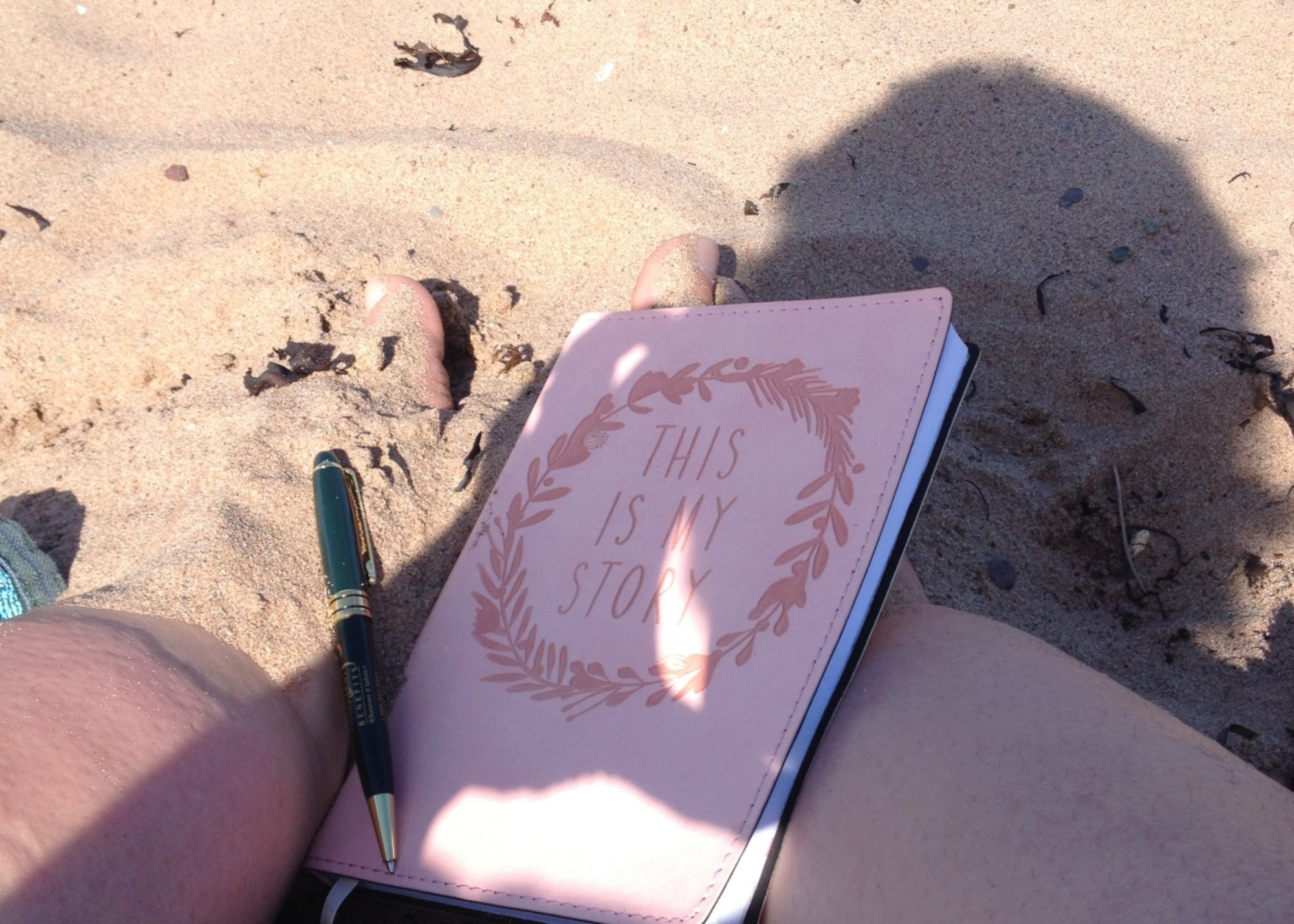I am my father’s daughter, a fact that both enriches and terrifies me. This will, however, make me a better writer. Here’s how.

First, though, a bit about my dad. He wasn’t a writer, he was an electrician by trade, both of us in the business of connecting: his medium was electricity, mine was words. We also didn’t realize then, but it is apparent now, that we shared something else: battles with ourselves, defining our lives from the time we both could remember. For him, it was being born a gentle, loving soul into a sandpaper world, a determined spirit in a body plagued by childhood illness and chronic pain, a life lived, as a result, in the protection of intellect while the spirit starved. On rare days his spirit won, and in those moments anyone in his presence, ever so brief, was made to feel part of something special, warm, aware, trusting in the great potential and unseen of the universe, until intellect would slam shut the door and begin the lockdown anew. His battle ended, I pray, with his passing on Dec. 13, 2015.
Reflecting on his life and death, however, has kicked my battle into high gear. I possess that same intellect, that same ability to talk myself out of things or even shut myself down rather than risk anything: stage fright as a child so severe that I quit the music I loved altogether at 16, and that by 30 was creeping into my writing as well. Shyness, self-doubt, fear of one’s own voice are all butterfly kisses of death to any form of success as a writer.
Life is choice.
So, should I ignore my spirit’s desire to connect through writing and save myself a lifetime of combat? Or, do I take a breath and dive into the memories, risking pain and drowning to find treasures of knowledge my time with my father has created?
I choose memories. There are thousands upon thousands, so for this first attempt I didn’t dive too deeply, and found these five. They came from our epic father-daughter battles, and from the quiet of just sitting together, saying nothing, knowing everything. Some things he taught me about what to do. Some are things I wished could have taught him.
Here they are, five things my father’s life teaches me about writing.
1. Be fastidious.
This was an endless source of amusement when I was younger, and annoyance in my later years. He would check, recheck, and check again, every little step along the way: burners on the stove, door locks, keys in hand, wallet in pocket … turning his computer on required the plugging in of two power bars and his monitor, plus the flipping of two switches. therer would be no power getting in or out of there without his say-so. Yet, it was this same attention to detail that saved me on grad night from driving to the wilds of cottage country without a drop of oil in the car, or from overpaying the government three years in a row on my taxes.
In the context of writing, attention to detail can lead to a better quality of product, more efficient service, and benefits to both author and reader: good relationship, more sales, solid reputation … all great stuff.
2. Trust YOU.
This is something I wish my father could have learned, but he was raised in an era when trust was to be placed only in the ‘professionals’: scientists and doctors, for example. As he aged and his health issues multiplied, he placed more and more expectation on the medical system, but didn’t realize that in doing so, he was giving away more and more of himself. YOU do not need a degree, certificate, or acceptance letter to tell you who YOU are or what YOU are worth. In the writing world, where there is no clear-cut credential or formula to success, being true to YOU is the first and foremost unique quality YOU bring to the field. Once clear about YOU, then you as writer, publisher, or marketer can get out there and share your authentic story.
3. Know your numbers
Okay, chalk another one up to dear old Dad. He spent hours, and I mean hours, at his desk, examining every bill and bank statement, checking his investments and account balances, writing budgets, and managing schedules. If a penny was amiss, he was on the phone or, in recent months, on the computer to identify and remedy the discrepancy. He spent more time in a month on his finances than I did in a year, and since I am a small business owner, that was not overzealousness on his part, but slackness on mine. His being on top of his finances brought he and my mom the simple yet comfortable retirement they wanted, a mere pipe dream for most people their age.
Know Your Numbers is the mantra of every marketing course I have taken, even those course supporting a business model based on personal goals rather than cold hard profits. Numbers are needed for good business decisions. Good decisions lead to success, yes, for writers, too.
4. Build your community.
Another lesson I had little time to impart. My dad was brilliant, charming, and loved, but rarely shared this with the larger world. His comfort zone was doing things completely on his own. Writing may be solitary, but words freeze on the page without support of family and friends, beta readers, editors, mentors, investors, and word of mouth, blog and social media. It’s a dangerous world out there, but silence inside is deadly.
5. Believe
In what? Something.
Marriage is tough, but my parents did it with love for 49 years, because they believed it was their life, the best they could do for their family and each other. We kids and grandkids have to agree: our parents gave us what they could for a good life, and gave us the tools to get what they couldn’t – or shouldn’t – give us themselves. Throughout the hard work and pain that his life often included, my father always believed in the Golden Rule – Do Unto Others as your would have them Do Unto You. He encouraged his children to be independent, respectful and honest. He challenged institutions to be more humane. He clung to the belief that we as humans could create a better society, even though his intellect churned it into frustration. On a personal note, he always dreamed of visiting the Egyptian pyramids. Hope he’s there right now, soaking up all the wonder and energy they represent.
As writers, we believe we have something to say. As published authors we believe what we write is of interest to others. To be successful, we must believe in what we do, absorbing the fear and setbacks and criticism and rejection as energy to move forward rather than recoiling from it. We have to believe the hour spent polishing a sentence, the months spent doing a business plan, the week spent recharging on vacation will pay off.
It has taken me nearly a week to write this. In these hazy days after my father’s death I wanted to write, needed to write, but my intellect would have none of it. I have napped, snacked, paced, tidied, deleted emails, scrolled my timelines back to early fall, and cried. I am still doing all of the above. But one word after another, I have finished this. I am my father’s daughter, the light and the dark of him, and I will make the most of the new lives ahead for both of us.
Thanks for reading,
– Jennifer





